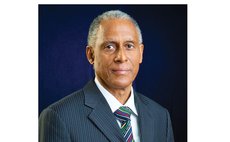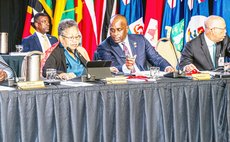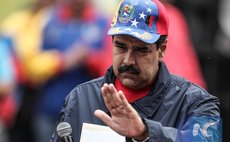Anti-Obama forces cloud global stability
With just 2 years effectively left in Barack Obama's Presidency of the United States, the world suddenly looks set to face even more danger than it does currently.
Control of the US House of Representatives by the Republican Party, following the November 4 mid-term elections, has emboldened the "neo-cons" who formed part of the George W Bush regime that launched the US into wars in Afghanistan and Iraq. The extreme right-wing views of figures, such as Dick Cheney, Bush's belligerent Vice President, and Paul Wolfowitz, his Deputy Secretary for Defence, are emerging in the thinking and statements of those who now occupy the Republican-dominated Congress.
A significant part of their thinking is that the US should take unilateral action and make pre-emptive military strikes anywhere and at any time that America's national security is imperiled. Of course, the "neo-cons" definition of America's national security is very broad and ranges from resisting any effort to address the effects of climate change to blasting the Islamic State of Iraq and the Levant (ISIL) into oblivion. In between those two extremes are stepping up support for Israel against Palestine, sending weapons to the Ukraine to resist Russia, and curbing China's growing influence in Asia and the Pacific.
As President, Obama did not satisfy fully any of the many groups and individuals who had so eagerly and expectantly supported his first campaign for the job. But despite the drone strikes, which he continued in Afghanistan and Pakistan and his failure to fulfil his promise to close the US military prison at Guantanamo Bay, Obama has tried to pursue a multilateral approach to America's involvement in the problems of the world. He has sought to give the UN Security Council the respect it deserves as well as to involve other nations in the theatres of conflict into which the US has been drawn.
Had he not done so, the world would have been confronted much earlier with the huge clashes that now loom large over it. What is more, the lives of thousands of American soldiers would have been lost in battlegrounds in the Middle-East, Eastern Europe and elsewhere. And, antagonism and hostility to the US would have grown exponentially, widening even more the readiness of aggrieved parties to use terror for revenge against America.
He gets no credit for his measured foreign policies from the Republicans who blame him for allowing ISIL to be formed and for the existence of the murderous ISIS group. Even his judicious handling of Iran and its potential for developing a nuclear-weapon capability won him no plaudits with a Republican Party that is so jaundiced in its attitude that its representatives accord him not the slightest commendation.
Within days of securing a majority in the House of Representatives, the rampant Republican Party showed its determination to overturn progressive international policies that Obama is trying to put in place. Few hours had passed after Obama signed a historic and globally important agreement on November 12 with Chinese President Xi Jinping to curb the greenhouse gas emissions of their countries, when the Republicans attacked it. The Republican Party's attitude to Climate Change portends greater grief for small states that are the victims of global warming and sea-level rise. It also endangers the future of the planet, including the US, which is not immune from the damaging consequences of intense changes in climate patterns.
The worrying prospect for the world is that the "neo con" thinking inside the Republican Party could become so all pervasive that it dictates their stance in the US Congress over the last two years of Obama's Presidency. Such a stance has destructive implications within America for Obama's visionary health-care programme, which the Republicans would like to discard, and for a more balanced immigration framework. But, it will also contribute to an unsettled world from which only war-mongers will benefit.
It is in the nature of the American system of government that neither the President nor the Congress enjoy unrestricted power. Even when the President and the majority in the Congress are from the same political party, the two often have to negotiate agreements on laws and budgets. Such negotiations sometimes assume an acrimonious and bitter character when the President and the Congressional majority are from opposing parties. In the course of American history, Presidents and Congresses have learned the manners and principles of negotiation and bargaining to achieve some level of agreement in the management of the nation's affairs. That is as it should be in a democratic system. Both President and Congress are elected representatives of the people and, in managing the people's affairs, neither side should have unhindered power to act as they please. What comes out in the wash of negotiations between them may not be perfect, but at least it reflects consensus.
But, there has been a conspicuous difference in the way that the Republican Party representatives have treated with Barack Obama as President. Their hostility has often been palpable and outrageous, even to the point of the Representative of South Carolina, Joe Wilson, shouting the word "liar" at Obama as he delivered a Health Care Address to a joint session of Congress in 2009.
There is little doubt that the last two years of Obama's Presidency will be beset with obstacles on both the domestic and foreign policy fronts. There is almost a primitive urge within the Republican Party not only to ensure that he enjoys no successes during the rest of his term, but also to overturn the things he has accomplished so far. The present Congress has already shown that it has no intention of co-operating with him. Therefore, he has only a slim chance of implementing his instinctive policies for a better America and a more just world
However, as President, he can at least stop the renewed efforts of the 'neo cons' to advance practices that would alienate America and push the world into increased tension and instability. And, that he must do.
(Sir Ronald Sanders a Consultant and Senior Fellow at London University)
Responses and previous commentaries: www.sirronaldsanders.com




